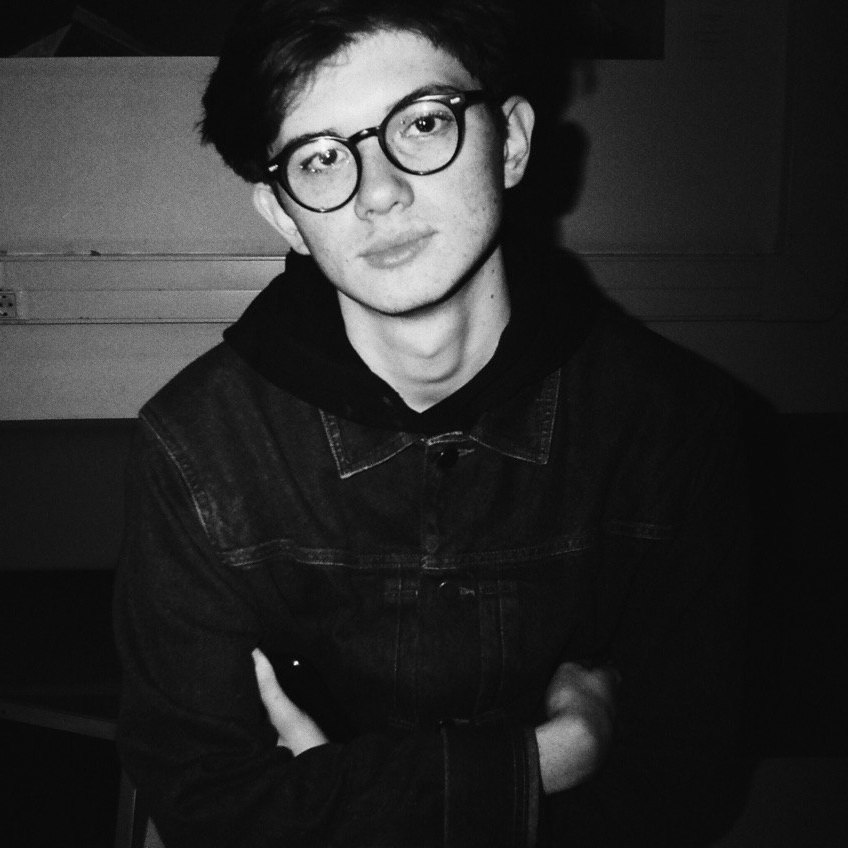→Lab Program
2. How machines learn and why data is subjective
3. Chatbots and text generators
4. Big Data, Recommendation systems and Platform Capitalism
5. Computer vision: from text recognition to combat drones
6. City
7. Ecology
8. Biases in AI systems
9. Data Feminism
10. Queering AI
→How will the lab go?
→What do I need to participate?
→Who made it?
 Denis Protopopov, an artist and researcher working at the intersection of technology, media, visual and performative arts, created and conducts this online laboratory. He is a co-author of the Digital Theater Workshop, developed and conducted lectures, courses and workshops for the Strelka Institute, the Masters School, the Photo Department, the Laboratory of New Media on the New Stage of the Alexandrinsky Theater. Denis's artistic works have been presented at exhibitions in the Hermitage, Sevkabel, VDNKh, the Museum of Communications, Pushkinskaya-10 and other institutions.
Denis Protopopov, an artist and researcher working at the intersection of technology, media, visual and performative arts, created and conducts this online laboratory. He is a co-author of the Digital Theater Workshop, developed and conducted lectures, courses and workshops for the Strelka Institute, the Masters School, the Photo Department, the Laboratory of New Media on the New Stage of the Alexandrinsky Theater. Denis's artistic works have been presented at exhibitions in the Hermitage, Sevkabel, VDNKh, the Museum of Communications, Pushkinskaya-10 and other institutions.→Feedback
"The laboratory made it possible in a short time to consider AI from different angles — from understanding how it works to practical application and the ethical consequences of this application. The materials are very well chosen — they are quite understandable even for those who were far from this sphere, and there were very interesting examples from art. It was also super that you can always ask something in a chat or at a consultation! The only advice is to keep up with the rhythm of the laboratory and attend all calls, it is better to calculate the load and free up your schedule."
"I am very grateful for the laboratory! She gave a lot of new things, a very wide range of knowledge in simple language, which was important for me. I advise everyone who wants to dive into the world of artificial intelligence from different entry points!"
"Probably the most valuable thing about this course for me is that it opens up a whole fan of tools with their capabilities in a variety of contexts at once. It went very far that the texts often echoed each other with mentions and references, which helped indirectly to constantly scroll through what had already been passed in my head. At each stage, there is so much concern about the participants' workflow: translations of all texts, the language in which terminology and the operation of tools were explained (my inner student rejoiced). Sometimes there was confusion, but everything was made up for by lightning responsiveness in the chat. I was a little lacking in some more research about the Russian context (for example, about tracking systems in the subway and arrests, about monitoring schoolchildren, well, or something else that really works now and how exactly near us), although now relying on the course grid it will be easy to build up your theoretical and practical base. So I would also attribute the lacunae to the pros. For me, it was the most comfortable learning experience and atmospheric in terms of materials and their quantity and presentation, very skillfully structured. A lot of practical things have really become clear, and now it's not so hard to go deeper into the study (I can now run notebooks in the collaboration!). Not everything was in time along the way due to the days of moving, but if I lived in a slightly more relaxed mode, I would say that the timing-for-the-amount-of-materials is perfect."
"Once again, I will say that I am zero in the digital world, it was scary to fit into any discussions, although Denis created a very pleasant and safe environment. A lot of thoughts about authorship and co-creation with AI. Once again I realized in what vacuum I exist in terms of respect, stereotypes and awareness."
"thank you, it was very cool! I wanted to study this topic a little myself in the summer and immediately realized that it was quite difficult to find understandable and useful sources, so the laboratory is exactly what I needed!"